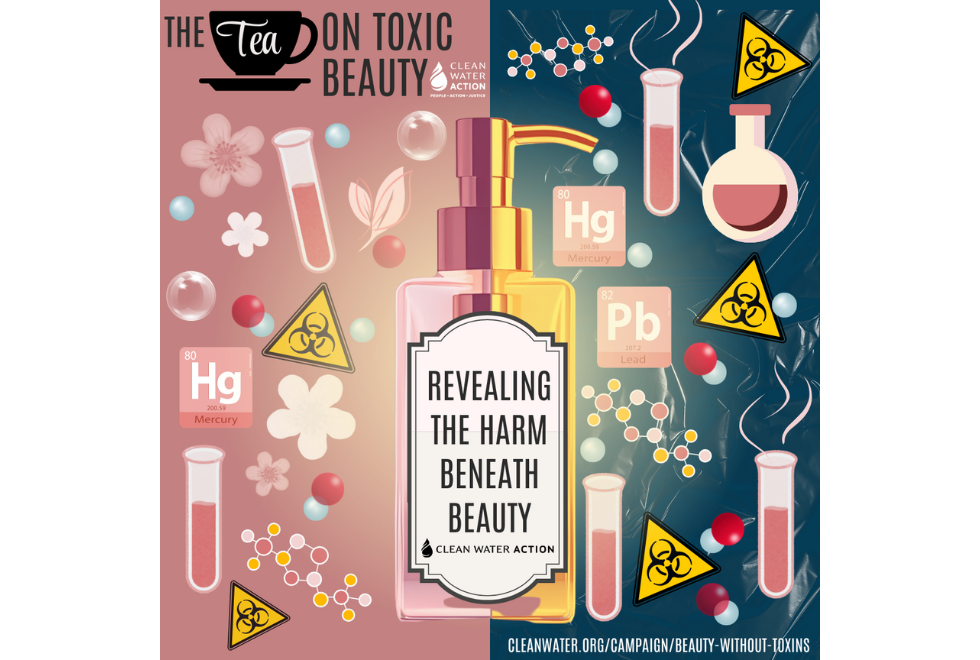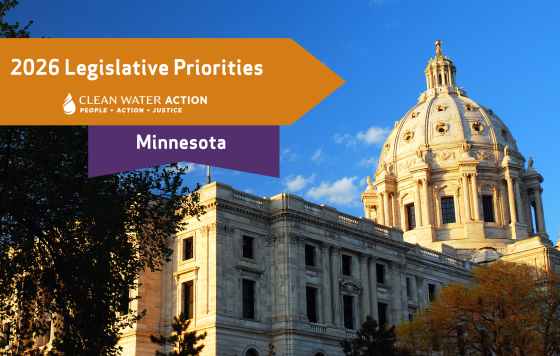
In a world where beauty standards often dictate self-worth, it’s time to shed light on the hidden dangers lurking in personal care products, particularly for women of color. Recent studies reveal alarming trends in the safety of cosmetics, with significant implications for reproductive health.
A new study from Boston University suggests that Black women who have used hair relaxers more than twice a year or for more than five years have a 50% increase in uterine cancer risk (New York Presbyterian - Health Matters, 2020). This data underscores the urgent need for awareness and action against harmful beauty products that disproportionately affect marginalized communities.

The Hidden Risks of Chemical Hair Relaxers
Chemical hair relaxers, commonly marketed to and used by Black women, are often loaded with potentially harmful ingredients. Dr. Kathryn M. Rexrode, Associate Professor of Medicine and Chief of the Division of Women's Health at Harvard Medical School, emphasizes that while products are tested for immediate issues like skin irritation, they often lack thorough evaluations for long-term safety. This gap in testing is concerning, especially considering that many beauty products contain endocrine disruptors, chemicals that can interfere with the body's hormone system, potentially causing health issues.
The statistics are staggering. Women of color use beauty products at higher rates than their white counterparts, exposing themselves to a myriad of chemicals linked to reproductive health issues. As environmental justice organizers, we must highlight the inherent racism within the beauty industry, where the health of Black women is often compromised for profit. Approximately 50% of hair products marketed to Black women contain endocrine-disrupting chemicals, such as parabens and phthalates, compared to just 7% of products marketed to white women (Harvard School of Public Health, James-Todd, T., 2020).

Other Potentially Toxic Products
The dangers of harmful chemicals extend beyond hair relaxers. Many personal care products, including shampoos, conditioners, lotions, and cosmetics, may contain toxic substances that disproportionately impact women of color. These products often contain similar endocrine-disrupting chemicals, leading to increased health risks.
For example, many commercial skin and hair products include:
- Parabens: Widely used preservatives that can mimic estrogen and disrupt hormonal balance.
- Phthalates: Used in fragrances, these chemicals have been linked to various health concerns, including reproductive issues.
- Synthetic fragrances: Often a mix of undisclosed chemicals, these can cause skin irritations and allergic reactions while potentially disrupting endocrine functions.
- Color additives: Some dyes, especially in hair products, may contain harmful substances linked to cancer.
These toxic ingredients are often found in products specifically marketed to Black women, raising further concerns about the targeted marketing of hazardous substances.
Chemicals to Avoid in Personal Care Products
To empower consumers, it’s crucial to be aware of the harmful chemicals commonly found in beauty products. Here are some ingredients to steer clear of:
- Formaldehyde: A known carcinogen found in some hair treatments and nail products that can cause serious health problems.
- Sodium lauryl sulfate (SLS): This foaming agent can irritate the skin and is often found in shampoos and body washes.
- Lead and heavy metals: These toxic elements can be present in some cosmetics and have been associated with numerous health risks.
The Need for Comprehensive Regulation
In recognition of the dangers posed by certain chemicals, the New Jersey legislature has introduced the Protecting Against Forever Chemicals Act ( S1042), aimed at regulating perfluoroalkyl and polyfluoroalkyl substances (PFAS). These man-made chemical compounds are notorious for their resilience in the environment, earning the nickname "forever chemicals" due to their inability to break down over time. The act establishes several key requirements and prohibitions:
- Prohibitions on Sale: Beginning two years after the act's effective date, the sale of cosmetic products, carpet treatments, and food packaging containing intentionally added PFAS will be prohibited within the state.
- Labeling Requirements: Manufacturers of cookware containing PFAS must clearly label their products, stating: “This product contains PFAS.” This requirement aims to enhance transparency and inform consumers about potential health risks.
- Compliance Audits: The New Jersey Department of Environmental Protection (NJDEP) will have the authority to audit and investigate manufacturers to ensure compliance with the new regulations.
This legislation is a critical step toward protecting public health and the environment by prohibiting the intentional addition of PFAS to consumer products and implementing a source reduction program to mitigate PFAS contamination in air, water, and soil. As we continue to combat toxic beauty practices, this act exemplifies the essential regulatory changes needed to safeguard women's health and promote safer alternatives.
Safer Alternatives and Advocacy
To combat these disparities, we advocate for stricter regulations on cosmetic products and for greater transparency in ingredient lists. In the meantime, here are some suggestions for safer alternatives to harmful beauty practices:
- Explore natural hair care options: Consider using natural oils (like coconut or argan oil) or herbal treatments instead of chemical relaxers.
- DIY beauty products: Many common ingredients can be found in your kitchen, such as honey, aloe vera, and shea butter, which can serve as safer alternatives for hair and skin care.
- Seek out clean beauty brands: Look for brands that prioritize safe ingredients and transparency in their formulations. Resources like the EWG’s Skin Deep database can help identify safer options.
Join the Movement for Change
Our campaign for safe cosmetics, Beauty Without Toxins, aims to raise awareness and encourage consumers to be informed about the products they use. We call on the community, elected officials, and allies to join us in pushing for the implementation of policies, like S1042, that prioritize the health and safety of women of color. We will keep you updated on our progress and encourage everyone to participate in our upcoming initiatives. Together, we can create a future where beauty products are safe for all.
References
New York Presbyterian - Health Matters. (2020). Retrieved from NY Presbyterian
Harvard School of Public Health, James-Todd, T. (2020). Retrieved from Harvard School of Public Health
Boston University Chobanian & Avedisian School of Medicine. (2023). First large study of hair relaxers among Black women finds increased risk of uterine cancer. Retrieved from Boston University
WE ACT for Environmental Justice. Beauty Justice: Health Risks of Toxic Skin Lighteners. Retrieved from WE ACT
19th News. (2023). Black women face health risks from toxic substances in chemical straighteners. Retrieved from 19th News
Protecting Against Forever Chemicals Act. (n.d.). Retrieved from New Jersey Legislature


